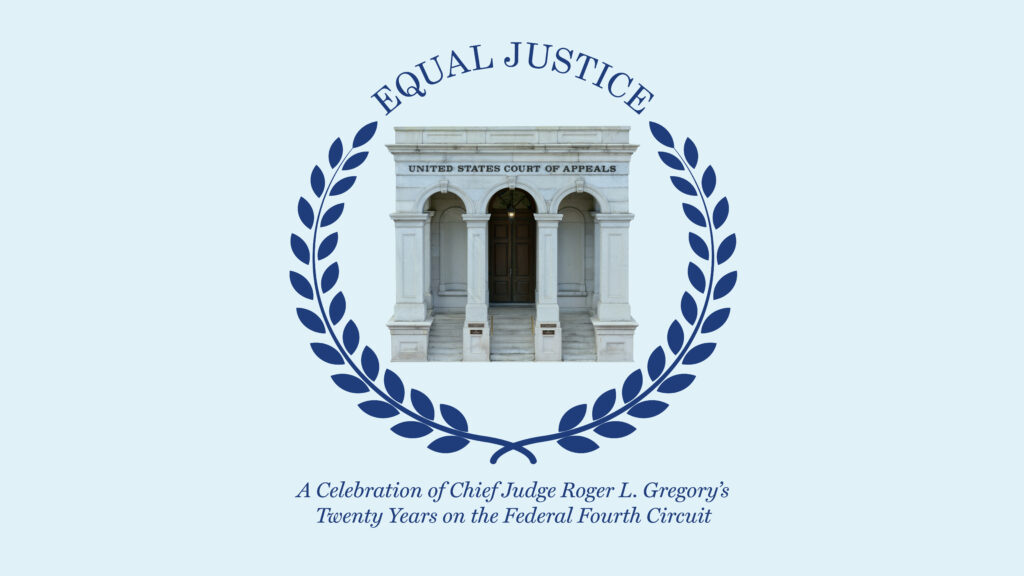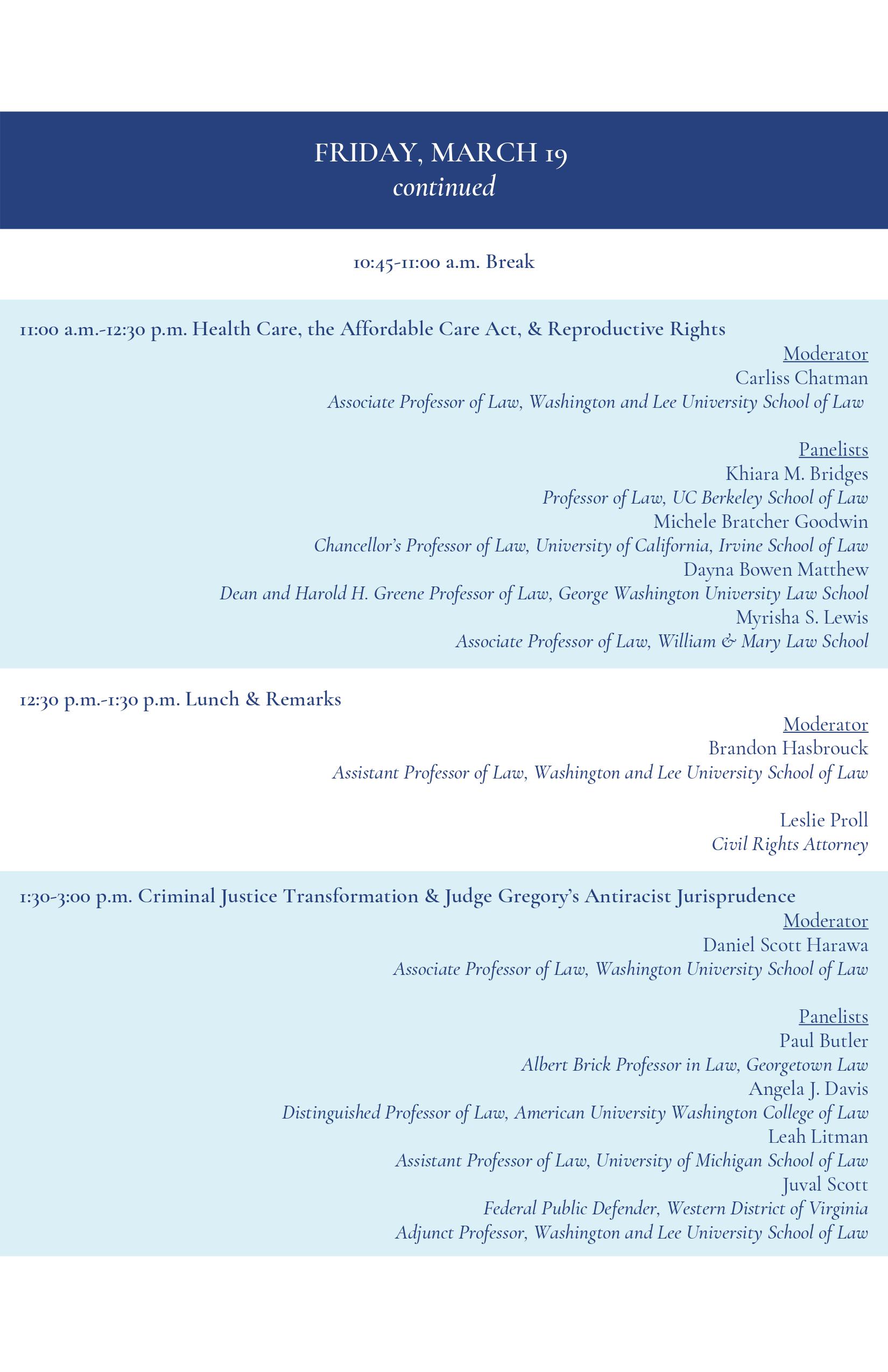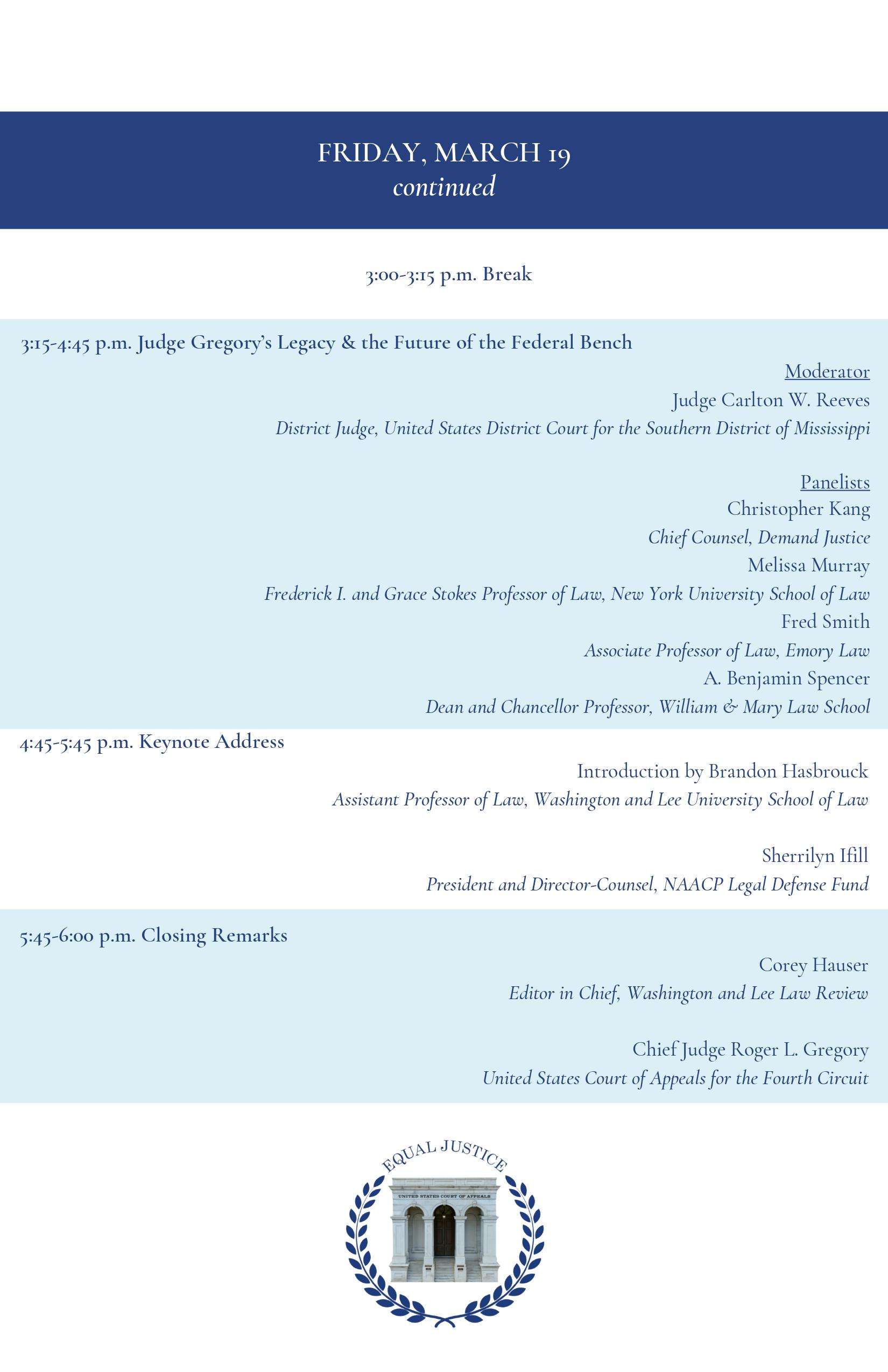
8:45 a.m. Welcome and Opening Remarks
9:00 a.m. Panel #1: The Future of the Voting Rights Act
Moderator: Prof. Mark Rush, W&L Department of Politics
Speakers:
§ Prof. Henry Chambers, Richmond Law
§ Prof. Travis Crum, Washington University in St. Louis Law
§ Prof. Josh Douglas, Kentucky Law
§ Mr. Caleb Jackson, Counsel, Sen. Laphonza Butler, Senate Judiciary Committee
10:30 a.m. Break
10:45 a.m. Panel #2: Current Issues in Election Administration and Voter Suppression
Moderator: Prof. Maureen Edobor, W&L Law
Speakers:
§ Prof. Rebecca Green, William & Mary Law
§ Prof. Spencer Overton, GW Law
§ Prof. Bertrall Ross, UVA Law
§ Prof. Ciara Torres-Spelliscy, Stetson Law
12:15 p.m. Lunch Break
1:15 p.m. Keynote Address
Location: Moot Court Room
Speaker: Mr. Deuel Ross, Deputy Director of Litigation, NAACP Legal Defense and Education Fund, Inc.
2:00 p.m. Panel #3: Litigating Voting Rights
Moderator: Prof. Chris Seaman, W&L Law
Speakers:
§ Prof. Ruth Greenwood, Director, Election Law Clinic, Harvard Law
§ Mr. Ernest Herrera, Western Regional Counsel, Mexican American Legal Defense and Education Fund
§ Ms. Danielle Lang, Senior Director, Voting Rights, Campaign Legal Center
§ Ms. Terry Ao Minnis, Vice President of Census and Voting Programs, Asian Americans Advancing Justice
3:30 p.m. Break
3:45 p.m. Panel #4: Remedies in Election Law
Moderator: Prof. Alan Trammell, W&L Law
Speakers:
§ Prof. Wilfred Codrington III, Brooklyn Law
§ Prof. Michael Morley, Florida State Law
§ Ms. Jessica Matsuda, Gibson Dunn & Crutcher LLP
§ Prof. Nick Stephanopoulos, Harvard Law
5:15 p.m. Closing Remarks
Scott Koven, Editor-in-Chief, Washington and Lee Law Review
Prof. Chris Seaman and Prof. Maureen Edobor, Faculty Sponsors
The Lara D. Gass Symposium is named in honor of Lara Gass, a member of the Law Class of 2014 who passed away in an automobile accident in March of 2014. Gass served as Symposium Editor for the Washington and Lee Law Review, organizing the Law Review’s 2014 symposium focused on the 40th anniversary of Roe v. Wade. Lara was active within the Women Law Students Organization and also served as a Kirgis Fellow, the law school’s peer mentoring group, during the 2012–21013 academic year. In January 2014, Lara received recognition for her academic achievements, her leadership abilities, her service to the law school and university community, and her character when she was inducted into Omicron Delta Kappa, the National Leadership Honor Society.





